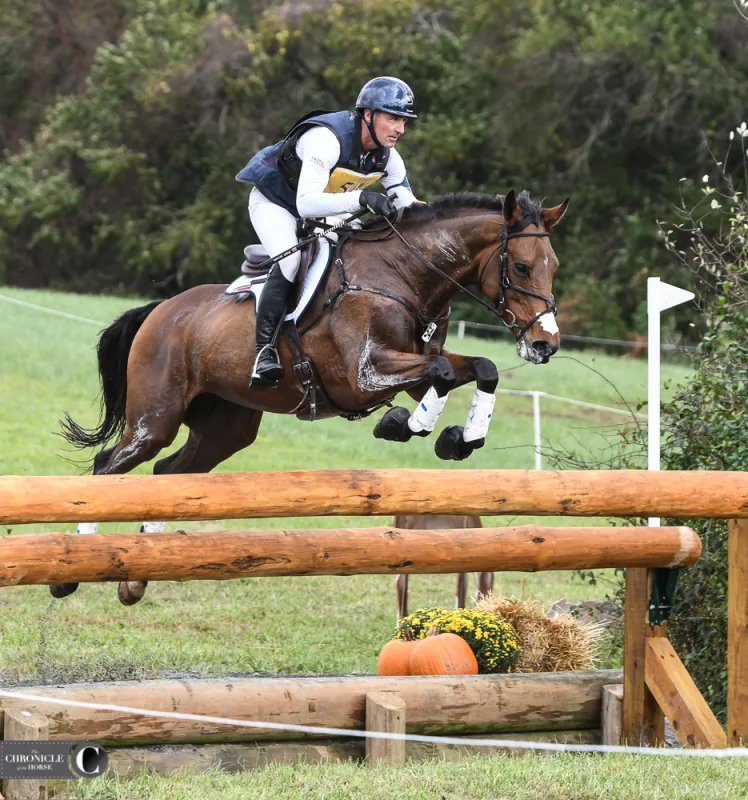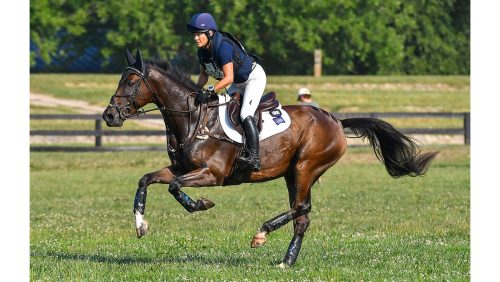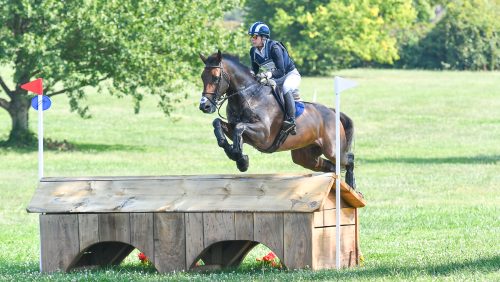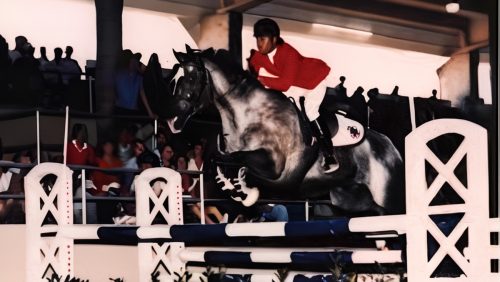None of us do this alone. We rely on a strong support system behind us: vets, farriers, students, teachers, barn workers, family, owners, fellow competitors, horses, etc. It is because of our individual teams that anyone in the equestrian disciplines has personal success, and it is because of our national support teams that team riders have success. We need to take personal responsibility for our successes and failures, but it is our team that guides us, keeps us going, motivates us and challenges us.
Last year I was caught off guard by anxiety and depression. As I’ve explained in the previous articles in this series, my mindset and focus on the outcome stopped me dead in my tracks. Since I had never experienced anything comparable to these issues, I had no idea how to deal with them. I lost motivation, was easily frustrated, found it difficult to interact with people, lost patience with my horses, and in general was difficult to be around. This really had an impact on my team.
Teams work when everyone on the team is committed to the success of each individual on the team. While I was so lost in my own mental struggles I wasn’t there for my team. My outcome-oriented focus, as well as the feeling that I wasn’t achieving my goals, kept me from seeing that I was neglecting my team and cut me off from the people who could have been helping me. Had I focused instead on my daily effort, my commitments, things that are within my control, and my actions and attitude, not only would I have been able to keep working towards my goals, but I would have also been more present and positive with my team. They in turn would have been able to help pick me up and keep me going when I needed that extra bit of support.
Maintaining motivation through the highs and lows is a major issue in sports across the board, but especially in horse sports, because one half of the partnership is very difficult to manage, and a lot of what goes on with our four-legged partners is out of our control.
It takes years to develop a horse to the upper levels of sport with no guarantee that once you put in the blood, sweat and tears you will actually make it there. Soundness, natural ability, attitude and cost are just a few things that are very inconsistent and hard to manage when competing horses. This separates equestrian from other sports, where the athletes’ own mental and physical health are the primary factors to their success in competition. Because of this, mental health among riders is a serious concern. Many riders either quit or settle far from achieving their goals because of the lack of control and ability to reach their outcome goals.

“Building strong teams, both small personal teams as well as large national teams, is an important aspect of individual success,” says Matt Brown. Lindsay Berreth Photos
A riders’ ability to maintain a growth mindset, have a strong process-driven outlook, and their ability to create a support team with the same growth mindset is, in my opinion, essential in order to successfully tackle the challenges inherent in horse sports. Building strong teams, both small personal teams as well as large national teams, is an important aspect of individual success.
In her book “Mindset,” Carol Dweck explains how an organization can foster a growth mindset in order to promote strong teams of people working together to innovate and drive a company or team forward.
A growth mindset team/organization:
ADVERTISEMENT
• Believes skills are learnable
• Conveys that the team/organization values learning and perseverance, not just ready-made genius or talent
• Gives feedback in a way that promotes learning and future success
• Presents managers as resources for learning
• Embraces challenges
• Views mistakes/failures as temporary and as opportunities
While a fixed mindset team/organization:
• Values natural talent
• Hires outside talent rather than developing from within
• Team members hide flaws and mistakes
• Team members are threatened by the success of others
• Ignores feedback
Dr. Dweck shows how the fixed mindset can shape the culture of an organization and endanger companies and teams large and small. She explains that “unintended side effects produced by a fixed organizational mindset include a rise in unethical behavior, over-focus on one area while neglecting other parts of the business/organization, distorted risk preferences, corrosion of organizational culture, and reduced intrinsic motivation.”
Dweck highlights how a growth organizational mindset can have a positive effect on teams. “People who work in growth-mindset organizations have far more trust in their company and a much greater sense of empowerment, ownership, and commitment. For example, when employees were asked to rate statements such as ‘People are trustworthy in this organization,’ those in growth-mindset companies expressed far higher agreement while employees in fixed mindset companies felt a general lack of trust in their organization. Right in line with this, employees in growth-mindset companies also reported that they were much more committed to their company and more willing to go the extra mile for it: ‘I feel a strong sense of ownership and commitment to the future of this company.’ Those who worked in fixed-mindset companies, however, expressed greater interest in leaving their company for another.”

“It’s your daily attitude, daily effort, attention to your commitments, and focus on the things that are within your control that actually create successful individuals as well as successful teams,” says Matt Brown.
Team leadership has the responsibility to help create this type of growth mindset culture, but it is just as important that each individual do their part to support and contribute to the team and culture. A team cannot thrive without each individual working towards the team’s mission and supporting the other members. There is no coasting on a team; each individual is either helping or hurting it. Just like I’ve experienced in my own small barn team, when everyone is positive and working together, things are great, but one bad attitude can bring the whole group down.
In order to maintain the health of the team, daily effort, risk-taking and support for each others’ processes and mistakes needs to be the primary focus of each team member. Continually focusing on the next competition, the next championship or the next win only takes our focus off of the things that we could or should be doing today to improve as individuals and as a team.
I understand why most teams have an atmosphere that favors outcome over process. We live in a metrics driven world. If it’s easily measurable it will be counted. Performance outcomes, points, wins and losses—these are the things that are tracked. Unfortunately, the process is not easily measured. The “how” of success is not easily tracked. But it’s the “how,” or the process, that leads to success. It’s your daily attitude, daily effort, attention to your commitments, and focus on the things that are within your control that actually create successful individuals as well as successful teams.
ADVERTISEMENT
Author and leadership consultant Joshua Medcalf puts it this way:
“In sports winning and losing is defined for us, so we need to spend zero time focusing on it. 100% of our energy should be spent on the process, controllables and our commitments. Burn your wishlist, I want to see your commitment list. I want to know what you are committed to sacrificing and what you are doing with your 24 hours a day to close the gap between where you are and where you want to be.”
I hope this series of articles has engaged readers in a positive conversation about how we can approach our goals and success. I certainly don’t have all the answers and am challenged on a daily basis to stay focused on the things that keep me motivated. We all will struggle, but if instead of hiding our struggles, we stay open about them, maybe we can learn from each other and help create a better team culture.
Matt Brown has been a lifelong student of the sport of three-day eventing, studying under masters such as Derek di Grazia, Volker Brommann and Denny Emerson. He also credits horseman and rancher George Kahrl for helping him learn how to create a trusting relationship between horse and rider.
Matt has been named to the USEF High Performance Training Lists since 2013. In April of 2015, Matt and his wife Cecily moved from California to Cochranville, Pennsylvania, to continue chasing his dream of representing Team USA. He was named as a reserve for the U.S. team at the 2016 Rio Olympic Games and finished the Rolex Kentucky CCI**** in sixth place in 2017.
You can read all of Matt’s insightful blogs for the Chronicle here.













